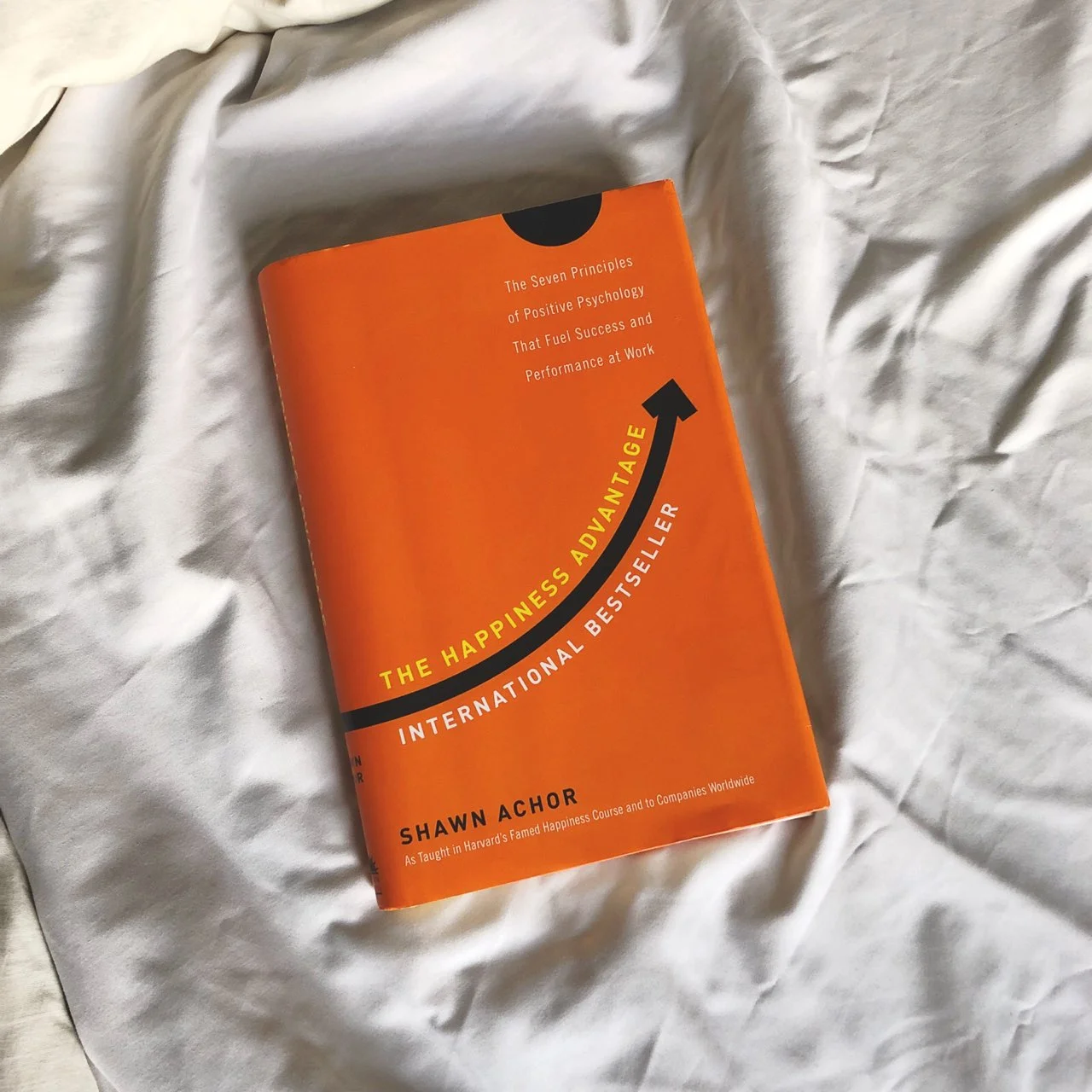What I Learned From "The Happiness Advantage: 7 Principles of Positive Psychology"
Introducing "The Happiness Advantage"
The book I'm talking about this week explores happiness (what's new?), but from the angle of success and how the the two inform one another. It's author, Shawn Achor, flips the old model of thinking on it's head and sums it up nicely below:
Old model of thinking: “If you work hard, you will become more successful, and once you become more successful, then you’ll be happy.”
New model of thinking: “Happiness is the precursor to success, not merely the result. Happiness and optimism actually fuel performance and achievement.”
If you have time, watch Shawn's TED talk below. It's how I first discovered him, and ever since, I've been completely enamored with his work:
Definition of Positive Psychology
I talk a lot about this concept, but I feel like it's my favorite authors who define it best. Here's how Shawn introduces the concept in his book:
“In 1998, Martin Seligman, then the president of the American Psychological Association, announced that it was finally time to shift the traditional approach to psychology and start to focus more on the positive side of the curve. That we needed to study what works, not just what is broken. Thus, 'positive psychology' was born.”
Additionally, there are a couple misconceptions about what positive psychology is, so here's a good example of what it’s not: “[Positive psychologists] will not tell you to paint on a happy face, use 'positive thinking' to wish away your problems, or worse, to pretend your problems don't exist.” Good right?
“Happiness is not the belief that we don't need to change; it’s the realization that we can.”
Even better.
Why is Positive Psychology Necessary?
In the simplest possible terms, regularly practicing positive psych concepts leads to happiness, and happiness leads to success for the individual and the collective. In Shawn's words, "we become more successful when we are happier and more positive."
There's quite a bit of evidence to support this claim in "The Happiness Advantage," but the following two stats jump out at me:
Doctors put in a positive mood before making a diagnosis show almost 3x more intelligence and creativity than doctors in neutral states, and they make accurate diagnoses 19% faster.
Optimistic salespeople outsell their pessimistic counterparts by 56%.
Some will argue that focusing on individual happiness is a selfish cause, but there is evidence to suggest otherwise. The first bullet above is only the tip of the proof iceberg when it comes to arguing that happiness generated at the individual level is generally passed on at the communal level. In fact, I would argue that a rising tide of happiness lifts all boats.
Positive Psychology Concepts, As Laid Out By Shawn
Getting to the heart of this post, the Slideshare! I originally gave the below presentation at work to a group of colleagues on the subject of happiness. It has since been adapted to a larger, more general audience. I hope you enjoy!
"The Happiness Advantage" Cheatsheet
Happiness leads to success, not other way around. This is Shawn's central point, and it's very reminiscent of core mindfulness and meditation concepts. Happiness is attainable right now, no matter the circumstances, through the practice of positive psychology. That cultivated happiness will serve as a foundation to a successful and fulfilling life.
Beliefs are a huge part of our happiness. In fact, Shawn notes that 90% of our happiness is dictated by our mindset.
We can train our brains to be happier through practice. The idea of neuroplasticity, defined as "the brain's ability to reorganize itself by forming new neural connections throughout life" is 100% possible and should be pursued relentlessly.
Failure is a huge opportunity for a happiness boost. You just have to be able to bounce back and learn from it.
Focus on that which you can control, starting with yourself. Self-awareness (another core concept of mindfulness) is the easiest thing you can start wrangling today.
Focus on habit formation, not willpower. Make good habits easier to do and bad habits harder.
Relationships are everything. Extensive studies reveal that social relationships are the single most important investment for a happiness advantage.
Conclusion
This was one of the easiest books to read, full of humor, and incredibly relevant information and actionable steps to take. I love a book with action items.
In closing, I’d like to pass on an action item of my own: I challenge each and every one of you reading this article to choose one principle to start practicing today, and let me know which one! I’ll check in to help hold you accountable, if you’d like.


